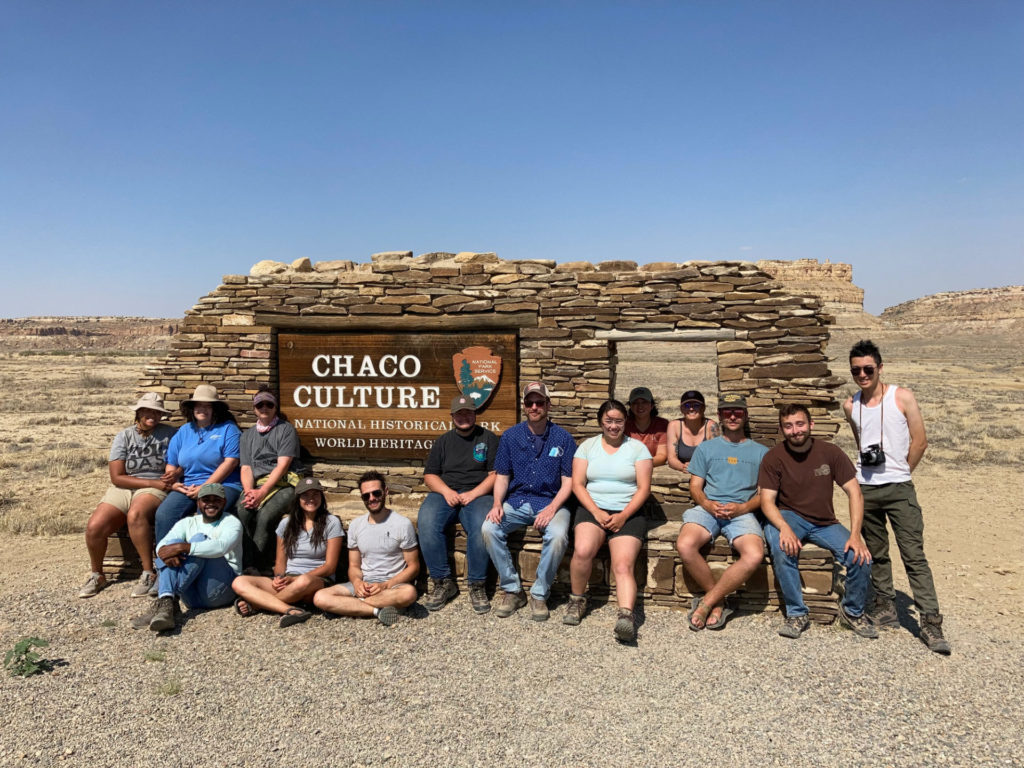- Home
- >
- Preservation Archaeology Blog
- >
- An Old Cultural Anthropologist Goes to Archaeologi...

(July 16, 2021)—Like so many during the COVID-19 pandemic, I had to make many social and economic adjustments I was unprepared for.
In the spring of 2020, I was finishing up my first year teaching cultural anthropology at a small liberal arts university, thinking I might have found a home where I could begin a lasting career as an academic. At the time, this was most certainly what I wanted for my life. It was also what many of those closest to me wanted.
Alas, as the old saying goes, “life is what happens while you’re busy making plans.” By the end of the semester, I found myself in good company with many other unemployed Americans. Over the next few months, it became increasingly clear that my time in anthropology, and as a traditional academic, had probably come to an end. But this story is not as disheartening as it could have been, as I was quite lucky to find another good job during a time where many others were struggling.
By the fall, I had moved to Montana with my partner Mary and started a new job as a Forester for the Bureau of Indian Affairs (BIA), becoming reacquainted with knowledge and skills I had not really used for some time. It was certainly a pleasant surprise to realize that I had landed in an organization with great people and that I still really liked doing forestry work.
It was an even greater surprise when I was asked if I would be interested in receiving some archaeological methods cross-training so I could assist the BIA with forest pre-development archaeological surveys. Naturally, I jumped at the opportunity to keep a foot in the door of the broader discipline that I had spent quite a long time studying. This is how I came to find myself at Archaeology Southwest’s Preservation Archaeology Field School.

Over the past few weeks, it has really been a pleasure to receive experiential training in the key archaeological methods of excavation, survey, and laboratory analysis that I should have become better acquainted with a long time ago. It has also been super interesting to participate in experimental archaeology projects such as flintknapping and adobe house construction, designed to help students better recognize and understand how the Salado groups of the area lived. Guest lectures about the various subspecialties within archaeology—such as geoarchaeology, historical archaeology, and archaeometry—have also been very informative.
Perhaps most importantly, it has been great to be around teachers and students who are passionate about archaeology and the broader field of anthropology. Watching students start to define their interests and find their niches as excavators, surveyors, laboratory analysts, ceramicists, lithic specialists, and museum professionals has been particularly encouraging. It has inspired me to think about the ways I can remain involved in anthropology in my own career. And it has given me hope for the next generation of anthropologists and archaeologists, who completed their training during a particularly difficult time.
2 thoughts on “An Old Cultural Anthropologist Goes to Archaeological Field School”
Comments are closed.
Jason
I am so excited to learn that you took up my recommendation to apply to this wonderful field school. Enjoy the Upper Gila and tell folks I said hello!
Bob Hard
Thanks so much Dr. Hard